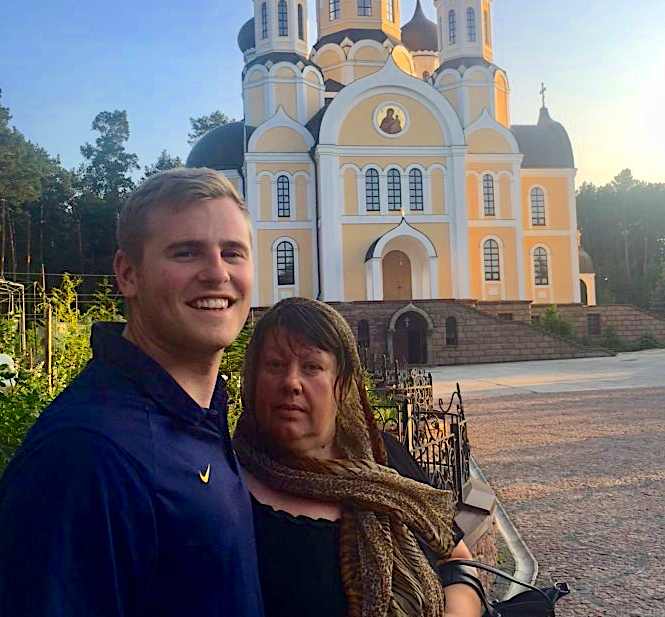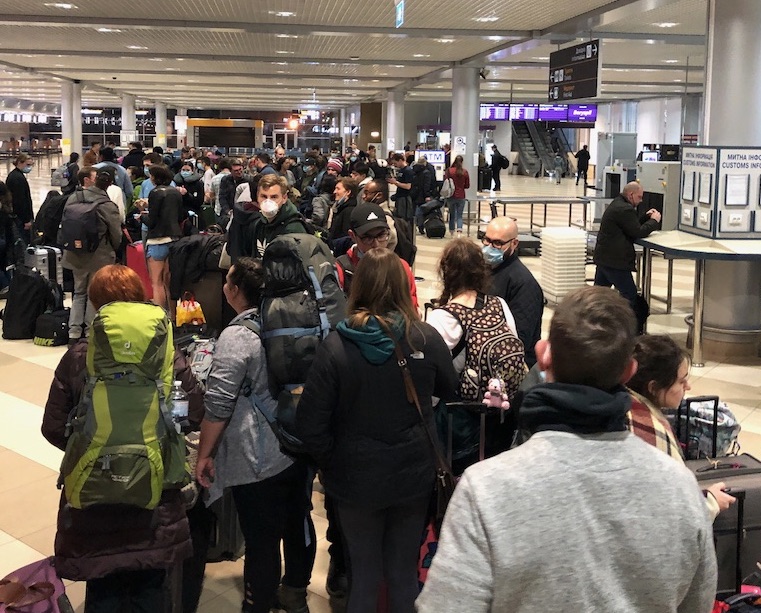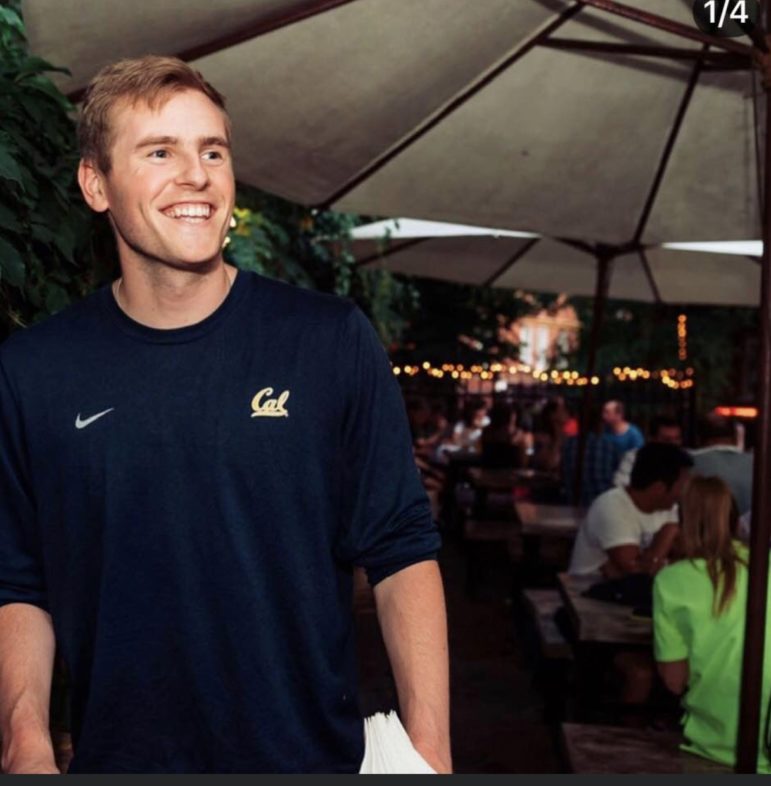
A Peace Corps volunteer from Piedmont recounts his team’s hurried evacuation from Ukraine during the pandemic.
Cormac Craigie had been working in rural Ukraine as a Peace Corps volunteer for nearly two years when suddenly, everything changed.
On March 14 he and dozens of other Peace Corps volunteers received a message from their safety and security manager directing them to gather their belongings and board a flight to the U.S. as quickly as possible. The Covid-19 virus was spreading and the U.S. government was suspending certain European travel. Craigie packed his bag, said farewell to his Ukrainian friends, and left for the airport.
But when he arrived at Kiev airport he found that his flight had been cancelled. He and several other volunteers grabbed an Airbnb near the airport for the night. They were confident they’d get another flight the next day. But that didn’t happen either, and with each day came new travel restrictions.
After a few days stuck in their hotel rooms, wearing surgical masks to avoid contracting or spreading any virus, Craigie and other volunteers began phoning their political representatives in the U.S. Craigie managed to reach Heather Hutt, state director for California Senator Kamala Harris. She was “really reassuring” and “unbelievably kind,” he said.
After three more flight cancellations and a week of waiting, Craigie finally boarded a Peace Corps-chartered plane to Washington D.C. via Madrid, Spain. Upon landing in the U.S., he said he was never examined, though many other volunteers’ temperatures were taken.
On March 22 Craigie arrived at San Francisco International Airport where his dad Peter was waiting. Returning home to Piedmont, his reunion with the rest of his family was muted: he’s on a 14-day self quarantine. He saw his mom Conna from a safe distance, gathered up a package of food she’d prepared for him, put his dog Rolo in the car and headed to a relative’s house in rural Jackson, California.
From Jackson, where he’ll remain for two weeks, Craigie spoke with Exedra writer Rachel Barber:
At what point did you realize things were changing and that you might need to get home?
“Obviously things all moved so quickly for all of us, but I think specifically the thing about Ukraine — you know, a post-Soviet society — there’s that natural kind of distrust or detachment from what’s going on. I think for most of us Peace Corps volunteers, we didn’t really have a sense of how serious this was. We didn’t think there was any possibility that we’d ever leave. So I didn’t think it was a possibility until we got the message saying we were getting out of there.”

Hw were you doing during all of this? Physically and mentally?
“It is frustrating not being able to leave. There are many things that are out of our hands. Each day, you could feel coronavirus getting more and more serious and we didn’t have much to do other than just quarantine in our rooms and watch CNN or talk to our families back home. We had family all over the place so it got more and more serious every day. I think that the stress came from being condensed with that many volunteers, knowing that there were at-risk volunteers, knowing there were cases in Ukraine, and the fact that we came from every corner. Just kind of being worried for other volunteers there and wanting to make sure they got home.”
When you first got home, you’re with your dad in the car — what was the drive like? Were you able to catch up?
“Yeah, we caught up. I was wearing a mask just cause, you know, I had gone through the airports and I didn’t want to pass anything along if there was anything I brought with me. It was nice just to share conversation about sports because we’re both big sports fans. Obviously right now there’s no {sports} going on, so it’s just kind of a weird time right now. What do you talk about besides coronavirus? Cause there’s nothing much else going on.”
As far as your self-quarantine, how is it going? Are you feeling alright, physically?
“Yeah, yeah I feel great. I’ve just been reading, and doing the Zoom video chat parties and talking to friends — catching up with everybody else. So, it’s been nice.”

Is there anything else you’d like to add?
“Yeah. With each progressive day, you kind of feel the weight of how serious it is and … my mom first encouraged me to contact my [representatives] early on. And it’s sort of one of those things where you’re like, ‘Oh. Come on. We’ll be fine. We’re all young, whatever.’ And then as you feel more and more powerless and you aren’t going home, you feel kind of like, … ‘Oh. This is something we should do and take it upon ourselves.’ “
“Especially in a time of crisis like this, people can feel like, “Oh. We’re not that important.” But, every rep I talked to and every person that other volunteers talked to — Republican, Democrat, whatever — they all got really positive responses….I guess the one benefit of this experience was kind of coming to that realization. These people really have the connections and everything set up to take care of their constituents.”
Rachel Barber is a sophomore at UC Berkeley majoring in political science